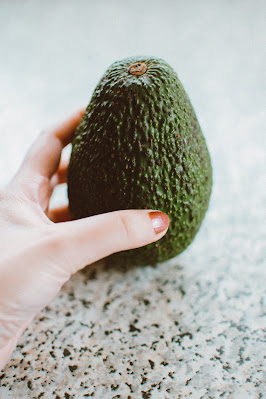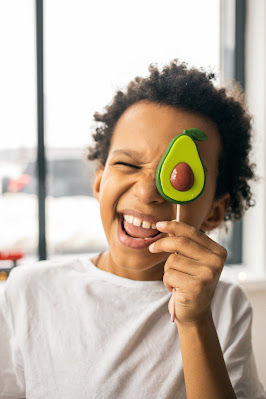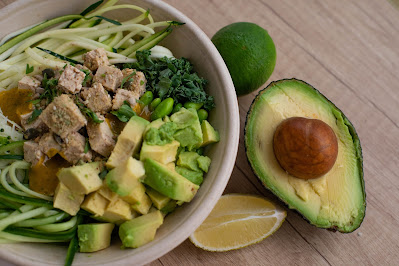The avocado is one of the most popular fruits in the world. It is often used in sandwiches and salads, or served as a dessert. The creamy fruit is also rich in potassium and vitamin C, which is good for your health. Some people even eat the skin of the avocado, which is rich in fiber and is healthy for your digestive system, and is also a good source of healthy fat.
Avocados are grown in a variety of climates all over the world, with Mexico as the leading producer of avocados in 2019, supplying 32% of the world total. Avocados are primarily cultivated in tropical and Mediterranean climates of many countries. Almost all major producing countries, such as the United States, Mexico, India, and China, have a strong agricultural industry for the avocado. The United States is the second-largest producer of avocados in the world, supplying 10% of the global supply.
The United States and Mexico account for almost half of the world’s annual avocado production. The United States is the leading producer of avocados in the Western hemisphere, supplying about one-third of the world’s domestic demand. Mexico, Colombia, and Peru are the three largest producers of avocados, with Mexico, Colombia, and Peru supplying almost all the avocados consumed in the United States.
The avocado, also known as alligator pear, is one of the most popular fruits in the world. It is a creamy fruit that is used in a variety of recipes, from sauces and dips to desserts and main dishes. The avocado is one of the most popular fruits in the world.
There are many ways that avocados help boost health. In particular, avocados are a great source of healthy monounsaturated fat, vitamin E, fiber, and potassium, and they contain a relatively high amount of healthy fat. They are also a rich source of the antioxidant beta-sitosterol, which has been linked to cholesterol-lowering effects and possibly to a reduced risk of heart disease. All this adds up to a diet rich in healthy fat, high in potassium, and low in saturated fat and cholesterol.
Avocados are one of the most nutritious fruits around, and they offer many health benefits. They are high in vitamins A, B, and C, as well as calcium, iron, and fiber. Over the years, scientists have been able to pinpoint some of the reasons why avocados may keep your heart healthy. Avocados are also rich in potassium and contain monounsaturated fats, which can help to keep blood sugar levels in check.
Benefits.
RICH IN NUTRIENTS
Avocados are a great source of vitamins C, E, K, and B6, as well as riboflavin, niacin, folate, pantothenic acid, magnesium, and potassium. They also provide lutein, beta carotene, and omega-3 fatty acids. The high fiber content of avocados helps to keep your digestive system healthy and regular, and the fat content of the fruit is also beneficial for your health. In particular, the monounsaturated fat content of avocados has been linked to cholesterol-lowering effects, which may reduce the risk of heart disease.
- 160 calories
- 14.7 g of fat
- 8.5 g of carbohydrates
- 6.7 g of fiber
- less than 1 g of sugar
HEALTHY FOR THE HEART
Avocados are a great source of healthy fat, which has been linked to cholesterol-lowering effects and possibly to a reduced risk of heart disease. All this adds up to a diet rich in healthy fat, high in potassium, and low in saturated fat and cholesterol. In addition to being a great source of healthy fat, avocados are also a rich source of the antioxidant beta-sitosterol, which has been linked to cholesterol-lowering effects and possibly to a reduced risk of heart disease. The high fiber content of avocados helps to keep your digestive system healthy and regular, and the fat content of the fruit is also beneficial for your health.
All this adds up to a diet rich in healthy fat, high in potassium, and low in saturated fat and cholesterol. Most people don’t eat all the fat in an avocado, but a small portion is important for a healthy diet.GREAT FOR VISION
Avocados contain lutein and zeaxanthin, two phytochemicals present in eye tissue. They provide antioxidant protection to help minimize damage, including from UV light.
This helps keep your vision strong and clear. They’re also great for other aspects of vision, like color perception. In fact, research has shown that people who eat lots of lutein- and zeaxanthin-rich foods, like dark leafy greens, have a reduced risk of colorblindness. Eating lots of avocados may also help improve your night vision.This helps keep eyes healthy and improves vision. Fresh avocados are a great way to add healthy fats to your diet. They’re high in calories and protein, making them a healthy, convenient way to add more healthy fats to your diet. They’re also great in smoothies, salads and other dishes.
MAY HELP PREVENT OSTEOPOROSIS
Half an avocado provides approximately 18% of the daily value of vitamin K.
Vitamin K is essential for the proper functioning of your bones. In fact, research has shown that women who consume the most vitamin K have the lowest risk of developing osteoporosis. One serving of an avocado provides approximately 18%Trusted Source of the daily value of vitamin K. This helps reduce the risk of bone loss and may help keep your bones healthy and strong.
COMPONENTS MAY PREVENT CANCER
Studies have not yet assessed a direct link between avocado consumption and a reduction in cancer risk. However, avocados do contain compounds that may help prevent the onset of some cancers, such as polyphenols, which are compounds that have been shown to have anti-cancer properties. In addition, research has shown that consuming avocados may help prevent the spread of cancer cells. This may be due to the compounds in avocados that have been shown to have anti-cancer properties.
Avocados also do contain compounds that may help prevent the onset of some cancers. In particular, research has shown that dietary fat and specific types of fat can play a role in the development and progression of certain cancer types. More research is needed to determine the specific role that fat consumed as avocado may play in cancer prevention and the most effective ways to incorporate this fruit into a cancer prevention diet.SUPPORTING FETAL HEALTH
Folate is important for a healthy pregnancy. Adequate intake reduces the risk of miscarriage and neural tube abnormalities.
It is also known to help build healthy cells and tissues. Avocados are a good source of folate, so a dietary strategy that incorporates this fruit may help reduce the risk of birth defects and other pregnancy complications. More research is needed to determine the most effective way to incorporate this fruit into a pregnancy diet to yield the greatest health benefits.It is best to get folate from foods such as dark, leafy green vegetables and beans, rather than supplements. The best source of folate is the Mexican variety of the avocado. This variety has higher levels of folate than other varieties, which makes it a great choice for those looking to increase their intake of this important nutrient.
BONUS POINT.
REDUCING DEPRESSION RISK
Avocados are a good source of folate, which plays an important role in overall dietary health. Studies have also found links between low folate levels and depression.





Comments